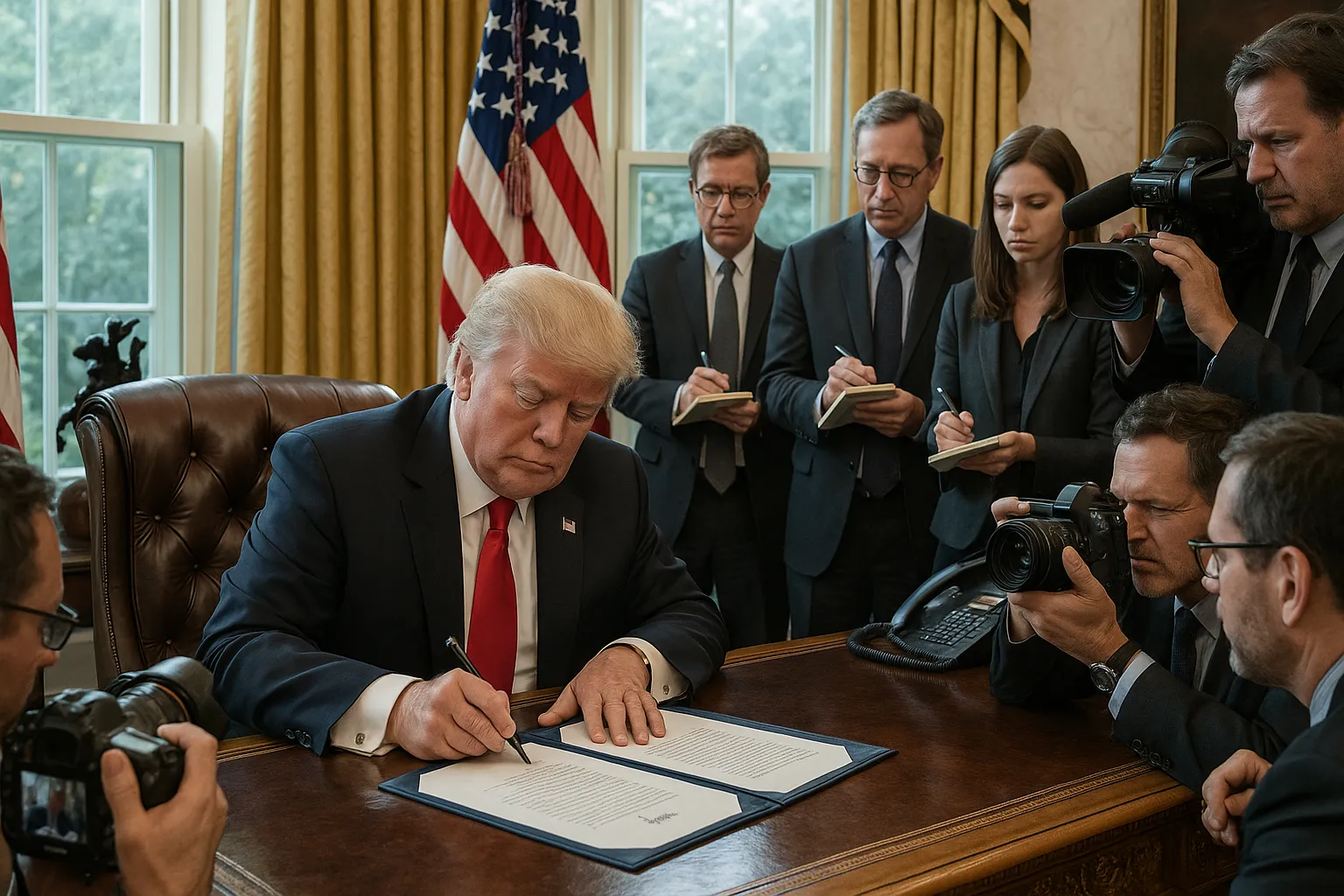Trump Denies Being a Dictator After ‘Maybe We Like a Dictator’ Remark

Washington, D.C., August 26, 2025 - President Donald Trump on Monday denied aspirations to authoritarian rule after suggesting the public might prefer a dictator, remarks made as he signed a package of executive orders aimed at tightening crime enforcement in the nation’s capital and criminalizing flag burning.
Trump, speaking to reporters in the Oval Office, recounted critics branding him “a dictator” and said, “A lot of people are saying: ‘Maybe we like a dictator,’ ” before insisting, “I don’t like a dictator. I’m not a dictator. I’m a man with great common sense and a smart person.”
The president used the occasion to defend his recent deployment of the National Guard in Washington and to reiterate plans to send troops to other cities facing high crime rates, specifically naming Chicago and Baltimore as potential targets for federal intervention. He also signed an executive order directing the Justice Department to investigate and prosecute flag burners, threatening up to one year in prison for desecrating the U.S. flag despite a Supreme Court ruling protecting such acts as free speech.
Leading Democrats condemned Trump’s rhetoric and actions as dangerously authoritarian. Illinois Governor J.B. Pritzker labeled the president “a wannabe dictator” who seeks to “occupy U.S. cities, punish dissidents, and score political points.” Chicago Mayor Brandon Johnson and other city officials joined in warning that the use of military force against American cities undermines constitutional liberties and democratic norms.
Legal experts have noted that the Posse Comitatus Act generally prohibits using the military for domestic law enforcement, and critics argue Trump’s orders blur the line between civilian policing and military authority. Proponents within the administration counter that extraordinary measures are necessary to combat surging violent crime in urban areas.
As debate intensifies over the proper role of federal power in local policing, Trump’s comments have crystallized broader concerns about executive overreach and the health of American democracy.
Categories
Beauty and fashion Business and finance Climate Entertainment Food and drink Games Health Hobbies and leisure Jobs and education Law and government Other Politics Science Shopping Sports Technology Travel and transportationRecent Posts
Tags